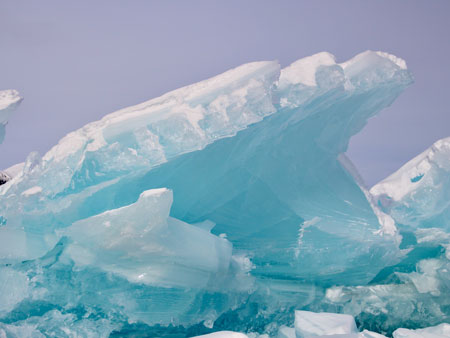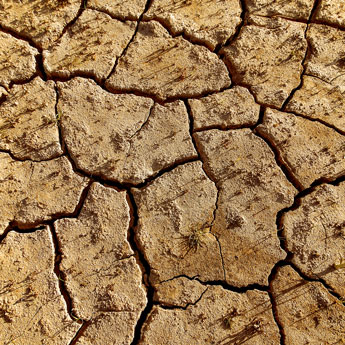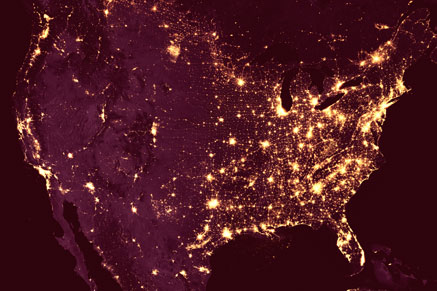
Is Heat a Bad Thing?
According to a study by the Crowther Laboratory in Switzerland, the global temperature may rise by about 3°C in the next 30 years. Those three degrees may seem like nothing to us. Still, this rise is so powerful that it may turn the climate of Moscow into the usual climate of American Detroit.
From 1880 to the present, the average temperature on Earth has risen precisely 1° Celsius (2° Fahrenheit) and continues to increase further. As a result, global ocean temperatures have become higher, eternal snows have begun to melt, and huge ice floes in the Arctic have started thawing. In addition, extreme natural phenomena such as droughts, floods, hurricanes, and fires occur with increasing frequency across the planet. All these events lead to infrastructure damage, starvation, lack of clean water, animal and plant deaths, and other global disasters.
Wildlife habitats are changing – the melting ice in the Himalayas has reduced the snow leopard population, rising global ocean temperatures are killing corals, and so are the organisms that feed on them. One million animal and plant species are now threatened with extinction. In addition, entire glaciers are disappearing – in August 2019, Iceland officially buried the Okyokul Glacier. According to WWF, there will be almost no ice cover in the Arctic in the next few decades.
The Arctic and Antarctic Are So Far Away. Does It Have Anything to Do With Me?
 The Earth’s North and South Poles are important to the planet’s climate and are especially vulnerable to global warming. Since temperatures are gradually rising, the Arctic and Antarctic ice is melting, causing sea levels to grow by 19 cm from 1901 to 2010. In 2019, 90% of the Greenland ice sheet began to melt. According to a study published in the scientific journal PNAS, if the Greenland ice sheet continues to decrease at the same rate as now, in 200 years, the sea level will rise by 48-160 centimeters, leading to frequent floods and hurricanes, so the coastal and island populations will start migrating to regions with a more stable climate.
The Earth’s North and South Poles are important to the planet’s climate and are especially vulnerable to global warming. Since temperatures are gradually rising, the Arctic and Antarctic ice is melting, causing sea levels to grow by 19 cm from 1901 to 2010. In 2019, 90% of the Greenland ice sheet began to melt. According to a study published in the scientific journal PNAS, if the Greenland ice sheet continues to decrease at the same rate as now, in 200 years, the sea level will rise by 48-160 centimeters, leading to frequent floods and hurricanes, so the coastal and island populations will start migrating to regions with a more stable climate.
What Causes Global Warming?
 The leading cause of global warming is human activities. People burn fossil fuels (coal, oil, gas), releasing gases into the atmosphere. Carbon dioxide, methane, nitrogen oxide, fluorinated gases, and others – all of these gases lead to the greenhouse effect because they can absorb a lot of the sun’s heat. Carbon dioxide has a share of about 64% of the anthropogenic causes of global warming, and its concentration in the atmosphere is now 40% higher than in the pre-industrial era.
The leading cause of global warming is human activities. People burn fossil fuels (coal, oil, gas), releasing gases into the atmosphere. Carbon dioxide, methane, nitrogen oxide, fluorinated gases, and others – all of these gases lead to the greenhouse effect because they can absorb a lot of the sun’s heat. Carbon dioxide has a share of about 64% of the anthropogenic causes of global warming, and its concentration in the atmosphere is now 40% higher than in the pre-industrial era.
Forests regulate the climate by absorbing carbon dioxide, but deforestation is minimizing this effect. From 1980 to 2000, 100 million hectares of rainforest were destroyed for building cities, grazing livestock, and organizing plantations and fields. More than half of the increase in global agricultural production was achieved by deforestation.
Agriculture is one of the main causes of methane and nitrogen oxide emissions: cows and sheep produce methane during digestion, and many fertilizers increase nitrogen oxide concentrations in the atmosphere.
Why Are People Beginning to Think About Global Warming Only Now?
The scientific community has been talking about global warming for a long time, but only in 2015 representatives of 195 countries signed the Paris Agreement, according to which global warming should be kept at 1.5°C compared to the pre-industrial era. According to scientists, this is the only way to prevent a climate catastrophe.

However, in late 2018, the Intergovernmental Panel on Climate Change released a report stating that addressing climate change cannot be delayed. The main conclusion is that irreparable damage to the planet may be done by 2030. Participants of the Paris Agreement promised not to let the atmosphere warm for more than 2°C by 2100, but now humankind is moving towards the 3°C level. According to experts, people have reached a critical point in their influence on the planet, so immediate global changes in all fields of society are urgently needed.
Is It Possible to Stop Global Warming?
Global warming can be stopped, but it will be very costly and require political commitment. According to the IPCC, it’s not enough to simply reduce emissions – they have to be eliminated. This plan requires us to completely abandon fossil fuel burning, rethink land use, agriculture, and urban planning. We have to find a way to remove the excessive greenhouse gases from the atmosphere, shifting the global economy to fundamentally new working mechanisms. So far, state leaders are not ready to take such measures because, firstly, citizens and voters will have to be convinced of the need for change, and secondly, reforming the energy system will take $2.4 trillion annually for 20 years.
On the other hand, the cost of solar panels and wind generators is gradually decreasing, and many states are progressively switching to renewable energy.
What Happens If the Earth’s Temperature Continues to Rise?
 The temperature increase just by 2°C will lead to frequent storms and flooding in many regions – especially coastal areas. Droughts will become common in warm climate zones. The world’s oceans will become more acidic – corals and many species of marine animals will begin to become extinct; food chains will collapse. It’s a tragedy not only for wildlife but also for humans – for over half a billion people, the fish that live among coral reefs are a major source of protein.
The temperature increase just by 2°C will lead to frequent storms and flooding in many regions – especially coastal areas. Droughts will become common in warm climate zones. The world’s oceans will become more acidic – corals and many species of marine animals will begin to become extinct; food chains will collapse. It’s a tragedy not only for wildlife but also for humans – for over half a billion people, the fish that live among coral reefs are a major source of protein.
Melting Arctic glaciers will not only destroy polar bear habitat but also cause an even higher rate of global warming: the Arctic, as the planet’s main “refrigerator,” will no longer be able to cool the Earth.
If global warming reaches 3°C, the ice of Greenland and Antarctica will melt catastrophically. As a result, ocean levels will rise rapidly, causing coastal areas and nations to be submerged. Many plant and animal species will cease to exist, and there will be a mass migration of people.
How Can Each of Us Affect This Situation?
To slow the rate of global warming, each of us should start with ourselves.
- Sort your trash – recycling reduces the landfills that release methane into the atmosphere.
- Conserve water and electricity.
- Try to drive less by car and more by eco-friendly transport like bicycles or electric scooters.
- Try to eat less meat, cheese, butter and drink less milk. There are so many equally delicious eco-friendly analogs and recipes available now.





